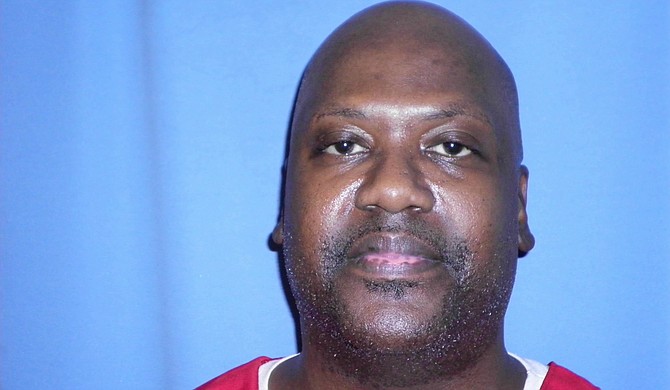Thursday's ruling overturning the verdict was a formality after the U.S. Supreme Court overturned the conviction of Curtis Flowers in June. Prosecutors say Flowers killed four people in a Winona furniture store in 1996, and he was sentenced to death in 2010 after his sixth trial. Photo courtesy MDOC
JACKSON, Miss. (AP) — The Mississippi Supreme Court is sending the case of a man tried six times for murder back to a local court after the U.S. Supreme Court found racial bias in jury selection.
Thursday's ruling overturning the verdict was a formality after the U.S. Supreme Court overturned the conviction of Curtis Flowers in June. Prosecutors say Flowers killed four people in a Winona furniture store in 1996, and he was sentenced to death in 2010 after his sixth trial.
It's unclear whether Montgomery County District Attorney Doug Evans will seek to try Flowers a seventh time. Evans is unopposed in his reelection bid this year for an eighth four-year term in a district that includes seven rural Mississippi counties. Evans has said he remains confident of Flowers' guilt, as have some relatives of victims.
Rob McDuff, a lawyer now leading Flowers' defense, said he will ask a judge to set bail for Flowers once Thursday's ruling is followed by a written mandate in 21 days.
Many Mississippi judges are reluctant to grant bail to defendants in cases where the death penalty is on the line. But a little-known state law says a judge must set bail in cases where there have been two mistrials on an indictment charging someone with a capital crime. Two of Flowers' trials ended in mistrials after hung juries.
The case began July 16, 1996, when four people were found shot to death inside Tardy Furniture in downtown Winona: 59-year-old owner Bertha Tardy and three employees — 45-year-old Carmen Rigby, 42-year-old Robert Golden and 16-year-old Derrick "Bobo" Stewart.
Defense attorneys could also seek to remove Evans and state court Judge Joseph Loper from the case.
Copyright Associated Press. All rights reserved. This material may not be published, broadcast, rewritten, or redistributed.



Comments
Use the comment form below to begin a discussion about this content.
comments powered by Disqus